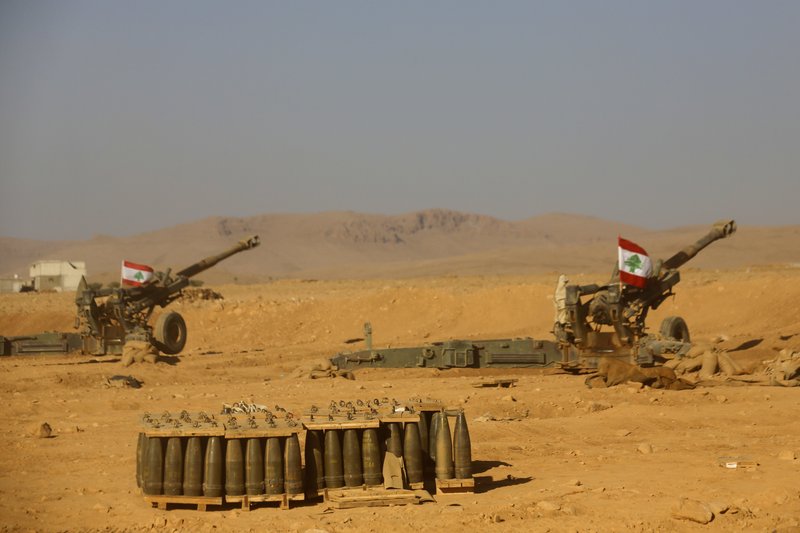BEIRUT -- Islamic State militants and their families traveling on buses arrived Tuesday in eastern Syria after a negotiated evacuation from the Lebanon-Syria border in the west, where the U.S.-backed Lebanese army deployed for the first time in years.
The evacuation agreement, the first such publicized deal reached with the extremist group, angered many Iraqis who accused Syria and Hezbollah of dumping the militants on the Iraqi border rather than eradicating them.
About 600 militants were allowed to leave, as a part of a deal negotiated by Hezbollah, in exchange for identifying the location of the remains of Lebanese soldiers captured by the Islamic State in 2014 and later killed. The deal also was controversial in Lebanon, as some have voiced opposition to negotiations with the militants.
Iraqi Prime Minister Haider al-Abadi said his government has sought an explanation from Syria.
[THE ISLAMIC STATE: Timeline of group’s rise, fall; details on campaign to fight it]
"Honestly speaking, we are unhappy and consider it incorrect," al-Abadi told reporters. "Transferring terrorists from Qalamoun" -- a site along the Lebanese-Syrian border -- "to the Iraqi-Syrian border is worrying and an insult to the [Iraqi] people."
"There must be no chance for Daesh to breathe," he added, using an Arabic acronym to refer to the Islamic State.
Shiite-majority Iraq has been largely supportive of Syria and the Iran-backed Hezbollah in their battle against the Islamic State, a Sunni extremist group and shared enemy. But many Iraqis expressed anger about the evacuation deal on social media.
"Who's going to pay for the delivery sent by Hassan Nasrallah to us?" wrote Saleh al-Hamdani, a writer, on his Facebook page, referring to Hezbollah's leader. "Will [state-sanctioned militias] or the Federal Police or Counter Terrorism Forces pay for it?"
Baghdad-based analyst Hisham al-Hashimi wrote on Facebook that Iraq's "selfish ally preferred to throw Daesh danger from Lebanon to Iraq, while Iraqis demolished the second-largest city [Mosul] in order not to enable Daesh militants to flee [to Syria] and damage the neighbor."
Information for this article was contributed by Sarah El-Deeb and Qassim Abdul-Zahra of The Associated Press.
A Section on 08/30/2017
